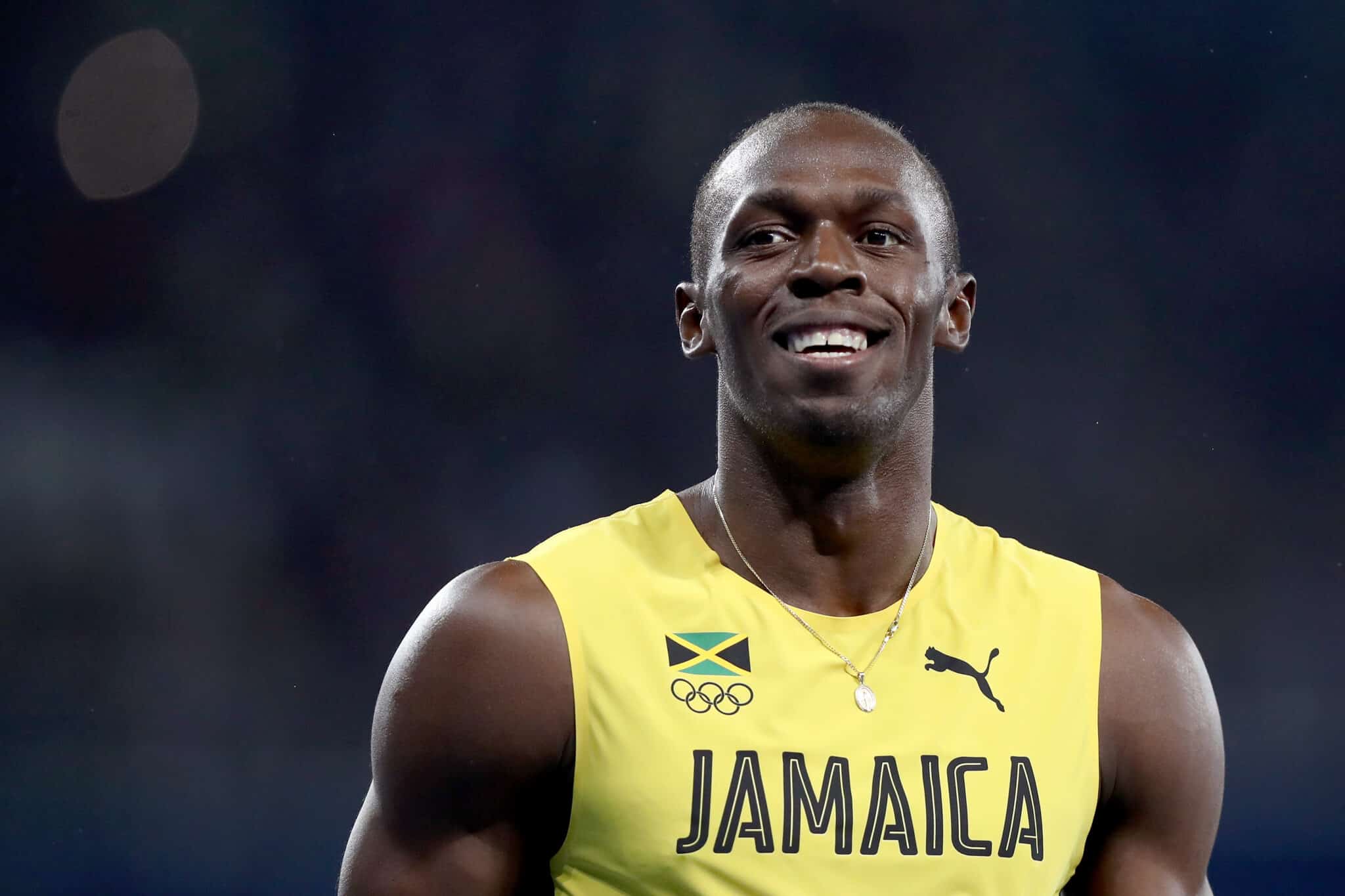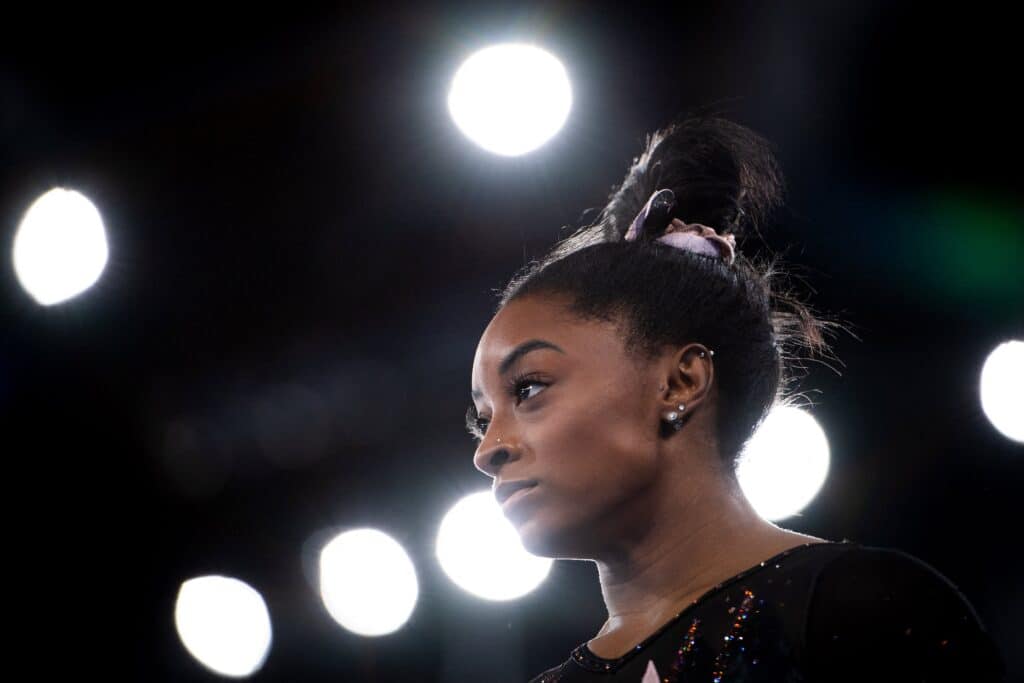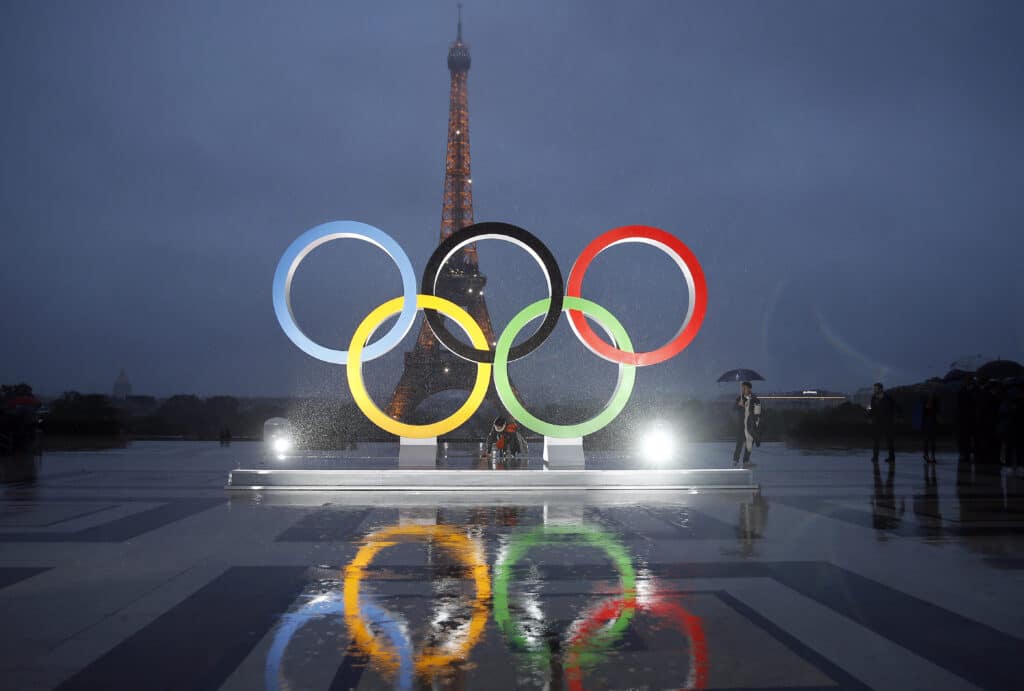Olympic Glory: Past Legends and Future Champions of Paris 2024

By Scott Kacsmar
The Paris 2024 Olympics are coming this summer, which makes Paris the second city after London to host the Summer Olympics three times. But it has been 100 years since the games were last held in Paris, France.
Who were some of the notable winners in the 1924 Summer Olympics in Paris? British runners Harold Abrahams and Eric Liddell won the 100 m and 400 m events, respectively. If those names do not sound familiar, then at least the Oscar-winning movie Chariots of Fire (1981) should ring a bell. It was a biopic about the success Abrahams and Liddell had at the 1924 Summer Olympics.
With 10,500 athletes competing in over 300 events from 32 different sports, there are many opportunities for future champions with great stories to emerge from the 2024 Olympics.
We have compiled a look back at past legends and their record-breaking performances, and we will preview some of the Olympians to keep an eye on during Olympics 2024 coverage in July and August.
Table of Contents
Legends of the Olympics
The Summer Olympics have been held about every four years since the inaugural event in Athens, Greece in 1896. Medals have been awarded to the top three finishers since 1904, so that leaves over a century of history and legends of the Olympic games.
We wanted to share some of the best to ever do it from Olympic swimmers to the dominance of Team USA in basketball.
Celebrated Icons and Their Legacies
Eddie Eagan (USA)
To this day, Eagan is still the only Olympian to win a gold medal at both the Summer and Winter Olympics in different events. Just as impressively, he achieved this 12 years apart and in two very different sports. Eagan won gold in boxing (light-heavyweight division) in 1920 and came back in 1932 to win gold for four-man bobsleigh. That type of versatility has yet to be matched.
Jim Thorpe (USA)
The first Native American to win a gold medal at the Olympics for the USA is arguably the greatest American athlete from the early portion of the 20th century. Thorpe was versatile as he played football, baseball, and basketball. He was an inaugural inductee to the Pro Football Hall of Fame in 1963. Thorpe won a pair of gold medals in classic pentathlon and decathlon in the 1912 Summer Olympics, the only Olympics he attended after he was found to have violated amateurism rules by playing semi-professional baseball. After having his gold medals stripped for this violation, Thorpe was finally reinstalled as the sole gold medal winner in those two events in 2022.
Michael Phelps (USA)
When it comes to Olympic swimmers, Michael Phelps is the greatest to ever do it. In fact, he is easily the most successful Olympian of all time, including everyone from the Winter Games. Phelps won a record 28 medals, including 23 gold medals, for swimming from 2004 to 2016 before his retirement. Phelps won the most medals of any athlete at each of the 2004, 2008, 2012, and 2016 Olympics. There is only one other athlete even within 10 medals of Phelps.
That moment when you outswim a legend to become one yourself!
— The Olympic Games (@Olympics) April 3, 2024
Joseph Schooling created an unforgettable Olympic moment at Rio 2016 by defeating his idol, the 23-time gold medallist Michael Phelps, in the men's 100m butterfly. Retiring from the sport at 28, Schooling leaves… pic.twitter.com/I4cCMWgEs9
Larisa Latynina (Soviet Union)
Before Michael Phelps, gymnast Larisa Latynina was the most individually decorated Olympian of all time. She won 14 individual medals and 4 team medals for a total of 18 Olympic medals (9 gold, 5 silver, and 4 bronze). Her 9 gold medals are the most by any gymnast (male and female), and her success helped put the Soviet Union’s gymnastics team on the map. She later became a coach of her country’s gymnastics team, helping them win gold in 1968, 1972, and 1976.
Carl Lewis (USA)
Lewis is the second-most recent athlete to win 9 gold medals at the Olympics, where he competed in various track and field events during a long career that spanned from 1979 to 1996. Lewis won 10 medals in total, winning at events such as the 100 m, the 200 m, the 4 x 100 m relay, and the long jump. He was called the “Olympian of the Century” by Sports Illustrated in the early 1980s.
Usain Bolt (Jamaica)
While Michael Phelps was dominating in the pool, Jamaican sprinter Usain Bolt was setting world records on the track in the 2008, 2012, and 2016 Summer Olympics where he won 8 gold medals. He is the only sprinter to win Olympic 100 m and 200 m titles at three straight Olympics.
Four of the most epic Olympic record runs in men's athletics!
— The Olympic Games (@Olympics) February 27, 2024
100m: Usain Bolt in 9.63s
110m hurdles: Liu Xiang in 12.91s
200m: Usain Bolt in 19.30s
400m: Wayde van Niekerk in 43.03s (also the WR)When @omegawatches captured those record times, the world was in awe.
Will… pic.twitter.com/7GikwvDctc
Paavo Nurmi (Finland)
Known as the “Flying Finn,” Nurmi was the greatest middle-distance and long-distance runner of the 1920s. He became the first person to win 12 medals at the Olympics, finishing with 9 gold and 3 silver in the 12 events he participated in at the Summer Olympics in 1920, 1924, and 1928.
Jesse Owens (USA)
While many athletes won more medals than American track and field star Jesse Owens, his performance at the 1936 Summer Olympics in Berlin, Germany may be the most important in the history of the games. While Adolf Hitler was expecting to see Aryan supremacy, it was an African American man who won the event with 4 gold medals in the 100 m, 200 m, 4 x 100 m relay, and long jump events. The Jesse Owens Award is the highest accolade given out to the best track and field athlete in the United States each year.
Record-Breaking Performances
The Perfect 10
In the 1976 Summer Olympics, Romanian gymnast Nadia Comăneci became the first gymnast to be awarded a perfect 10.0 score. The scoreboard did not even know how to display the 4-digit score, so it just read “1.00” instead. Incredibly, she received six more perfect 10 scores in those Olympics, and she was just 14 years old at the time. In all, Comăneci won 3 gold medals in 1976 and 9 medals total in her Olympic career.
The very first perfect
— The Olympic Games (@Olympics) July 18, 2019was performed by @nadiacomaneci10 on this day 43 years ago. @gymnastics pic.twitter.com/2STcYrZ2Yu
Eight Is Enough for Phelps
There’s something to be said about American Olympic swimmers and their dominance at the games. In 1972 in Munich, American swimmer Mark Spitz set a single Olympic record by winning 7 gold medals and setting a world record time in each event. That record stood for 36 years until 2008 when American swimmer Michael Phelps won 8 gold medals. But like Spitz, Phelps set 7 world records for time in that event, his most dominant year on his way to 28 medals in his career.
Lightning Bolt
Usain Bolt’s stunning, record-breaking performance at the 2008 Summer Olympics in Beijing made him a household name and the fastest man in the world. Bolt set a world record for the 100 m sprint with 9.69 seconds. He broke his record a year later at a non-Olympic event (9.58 seconds), then he reset the Olympic record in 2012 with 9.63 seconds. In 2008, Bolt also set the 200 m world record with a time of 19.30 seconds.
Flo-Jo Sets World Record
In 1988, American sprinter Florence Griffith Joyner was affectionally known as “Flo-Jo” to the world for her record-breaking speed on the track. In the 1988 Summer Olympics, she won three gold medals and set a world record by running the 100 m in 10.49 seconds, a record that still stands today for women runners. In the same event, she set an American record for the 200 m at 21.34 seconds. That record still stands today too.
The Current Generation
Who might be ready to make a name for themselves in 2024, or to expand on their legacy? We have highlighted a few stars to keep an eye on this summer.
Rising Stars to Watch in Paris Olympics 2024
Nevin Harrison (USA), Canoeing
Harrison made history in 2021 when she became the first U.S. woman to win a gold medal in canoeing. We’ll see if the 21-year-old can repeat her success in Paris.
Quan Hongchan (China), Diving
At 14 years old, Hongchan won a gold medal in Tokyo in 2021. Now she can continue her rise to fame with five world titles also under her belt at just 17 years old.
Scottie Scheffler (USA), Golf
The world’s No. 1 ranked golfer looks to make his Olympic debut in Paris. Scheffler has been on a roll with a second career Masters win in April. Now let’s just hope he’s put his little legal scuffle behind him.
Simone Biles (USA), Gymnastics

Sure, she’s already a star, and the best to ever do it in the eyes of some. But with a dominant 2024 Olympics, Simone Biles can truly cement her legacy as the GOAT. She’s already won 7 medals at past Olympics, but let’s see if she can get into double digits at Paris. Just one more medal makes her the most decorated American gymnast in the history of the Olympics, but she likely has loftier goals than that.
Sky Brown (Great Britain), Skateboarding
This is a newer event, but Sky Brown already won bronze in Tokyo at just 13 years old. She has a chance to win the gold this time and establish herself as an Olympic gold medalist at 15 in addition to being a 2-time X Games champion.
Novak Djokovic (Serbia), Tennis
Djokovic has won a record 24 Grand Slam titles, but believe it or not, he has come out of four trips to the Olympics with just a bronze medal in 2008 to show for his effort. It would be very bizarre if one of the best to ever play never wins more than a bronze medal, but at 36 years old, this is Djokovic’s shot to get it done and add the gold to his resume.
Sha’Carri Richardson (USA), Track and Field
Don’t call it a comeback. Sha’Carri Richardson has revenge on the mind as a positive marijuana test prohibited her from competing in the 2021 Games in Tokyo. She could become the first woman sprinter from the U.S. to win gold in the 100 m since 1996. Richardson has been a rising star for years now, and the 2024 Olympics are her chance on the world stage to prove she is the best today.
Victor Wembanyama (France), Basketball
We know Team USA owns basketball at the Olympics, but France beat the US in a game in the 2020 Olympics, and France finished with a silver medal. Now let’s see what happens when NBA Rookie of the Year Victor Wembanyama joins the France national team along with Defensive Player of the Year Rudy Gobert. Those could be fun games to watch if Wemby shines.

Team USA, Basketball
We will explain below the importance of how Team USA fares in basketball, one of the most popular sports in the Summer Olympics. But here are some of the players on the Team USA basketball roster in 2024 that should be worth watching in addition to mainstays like LeBron James and Kevin Durant:
- Tyrese Haliburton, Pacers (currently injured in NBA playoffs)
- Anthony Edwards, Timberwolves
- Jayson Tatum, Celtics
- Devin Booker, Suns
- Steph Curry, Warriors (never played in Olympics before)
We will see what happens with Haliburton after NBA playoff injuries have hurt his availability in the Eastern Conference Finals against Boston. The Celtics also could be eyeing a deep Finals run for Tatum and Jrue Holiday, who are both on the Team USA roster.
Technological and Training Advances Shaping Today’s Athletes
Compared to the early days of the Summer Olympics, sports are a billion-dollar industry with athletes training year-round to be the best at their sport. There are many obvious advantages today’s athletes will have over the era of Jesse Owens, including access to the best training facilities, equipment, medical teams, nutritionists for dietary restrictions, and the ability to quickly view film to analyze their form or scout an opponent.
But a recent addition from the technological side has been wearable tech that the athletes can place on their bodies, and it will record data, tracking things such as movement, heart rate, and steps.
This can lead to a massive data overload, but if used right, the data can be useful. For instance, tracking jumps during a volleyball training session could be used to help prevent knee injuries from overuse. Runners could figure out their stride rate. Those in swimming, rowing, and running could see their stroke rate.
Technological advances in clothing have also been considered a factor in creating world records in many events. This includes cooling jackets and clothing to help athletes cool down during events. The company Speedo has used new fibers in their swimsuits that they believe help the swimmers move faster and set world records. Anta Sports worked with China in 2020 to develop Olympic weightlifting shoes that are designed to enhance mobility, increase stability, and provide feedback when moving heavy weights. The clothing is designed to provide waist support and prevent muscle strain.
Basically, anything to keep athletes healthier while making them faster and stronger is being looked at by companies with a vested interest in making these Olympians the best athletes in the world.
Comparative Analysis
The Games have changed a great deal over the years, and we wanted to highlight a few of the key changes in the Summer Olympics.
Evolution of the Olympic Games
Open to the World
In the first Summer Olympics in Athens, Greece in 1896, there were 43 events in 9 sports with 14 nations and 241 athletes participating. In the 2020 Summer Olympics (held in 2021), there were 339 events in 33 sports with 206 nations and 11,319 athletes participating. The Olympics have continued to expand the events, and the diversity of competition, and to welcome more nations that are willing to compete from around the world.
Equality for Women
When the Summer Olympics debuted in 1896, all 241 athletes were men. In 1900, 22 women were allowed to compete, though they still made up 2.2% of the athletes. It was not until 1984 that women almost made up a quarter of the athletes with a 23% share in Los Angeles. At the turn of the century in 2000, women made up 38.2% of athletes. In the 2020 Olympics, which were held in 2021 in Tokyo because of the pandemic, women made up a record 47.8% of participants.
For the first time ever at the Olympics, Paris 2024 expects to have an identical number of men and women athletes. This is a good, natural progression as women have made incredible gains recently in popularity with basketball and even garnering solid attention compared to the men’s soccer teams in some countries. Between the World Cup and Olympic soccer, women have stepped up in that arena, and it is translating over to other events as well.
More Basketball
One of the most popular sports for the Summer Olympics has been basketball, but this was not always the case. Everything changed in 1992 when Team USA basketball composed a “Dream Team” that was the first Olympic basketball team to feature active players from the NBA. This team cruised to an 8-0 record, won by an average of 43.8 points, and their closest win was 32 points over Croatia in the gold medal game.
The Dream Team changed the dynamics of Olympic basketball, and it put more pressure on Team USA to always win after the 1992 team was considered by some to be the greatest sports team ever assembled. This was the lineup for the 92′ USA national basketball team in the Summer Olympics:
- Christian Laettner (only collegiate player)
- David Robinson
- Patrick Ewing
- Larry Bird
- Scottie Pippen
- Michael Jordan
- Clyde Drexler
- Karl Malone
- John Stockton
- Chris Mullin
- Charles Barkley
- Magic Johnson
The entire 1992 Dream Team was enshrined in the Naismith Memorial Basketball Hall of Fame in 2010, and everyone but Laettner made the Hall of Fame for their NBA career too as individuals.
Argentina shocked the world in 2004 by winning the gold medal in Olympic basketball while Team USA only took home the bronze in a disappointing year. Team USA has won every gold medal since in 2008, 2012, 2016, and 2020.
In 2020, 3×3 basketball for men’s and women’s teams was added as a new event to the Summer Olympics.
New Events: In addition to 3×3 basketball, there has been a push in recent years for more new events to improve fan excitement while also making events that both men and women can compete in at the Summer Olympics.
Here are the recent additions to events at the Summer Olympics:
- Golf (returned in 2016 after not appearing since 1904)
- Rugby sevens (since 2016)
- 3×3 basketball (since 2020)
- Skateboarding (since 2020)
- Sport climbing (since 2020)
- Surfing (since 2020)
- Breaking (AKA breakdancing will debut in the 2024 Olympics in Paris)
- Flag football (will be introduced in 2028)
- Squash (will be introduced in 2028)

What Makes an Olympic Champion?
Beyond having elite athletic talent, the 2004 USA Men’s Basketball team is proof there are many factors that go into producing an Olympic champion. Skill is only part of the equation.
Physical and Mental Preparation
While the United States has dominated the medal count at the Summer Olympics throughout history, there are great athletes in other countries who live and breathe for these events as sometimes medal success at the Olympics is their only path to stardom. Many do not come from families that are wealthy, so they spend a lot of their time and what they have in resources for training to be the best they can be at their chosen sport.
That is why mental preparation can be just as important as the intense physical training for these athletes. Many coming from underprivileged backgrounds, have to work twice as hard to get somewhere as some athletes from the United States who have been given the best in teachers, nutrition, and training equipment from a very young age.
For most athletes, there are going to be setbacks. You have to overcome adversity and learn from defeat instead of running away from it. Injuries can also happen, and those can be a major setback if they are severe enough.
But years of dedicated training and determination are usually at the core of what it takes to become an Olympic champion.
The Role of Support Systems
Again, natural talent alone is not going to get you to the top at the Summer Olympics. The role of having a good support system is very important to these athletes.
This usually starts with an understanding family that will do the best for their athlete, including starting them at a young age in their rigorous training and doing the best they can to get their athlete the best in specialized coaching and training equipment.
Getting in contact with a great coach who has experience in developing Olympic athletes can be crucial too depending on the sport. Gymnastics is a great example of that benefit paying off.
Conclusion: When to Watch the Paris 2024 Olympics
We have looked at legends of the Summer Olympics, the potential stars to watch in 2024, and some of the exciting, newer events to watch. Now your question might be when is the Olympics kicking off in Paris this summer?
The Olympics 2024 schedule is available with the opening ceremony on July 26, 2024. The events will then run through August 11.
Related Articles:






